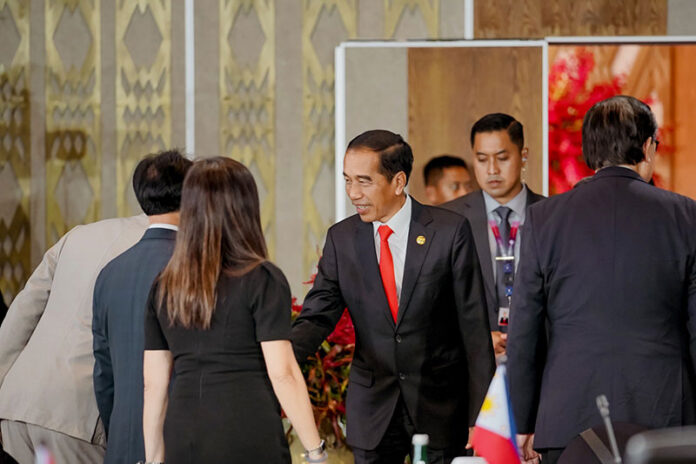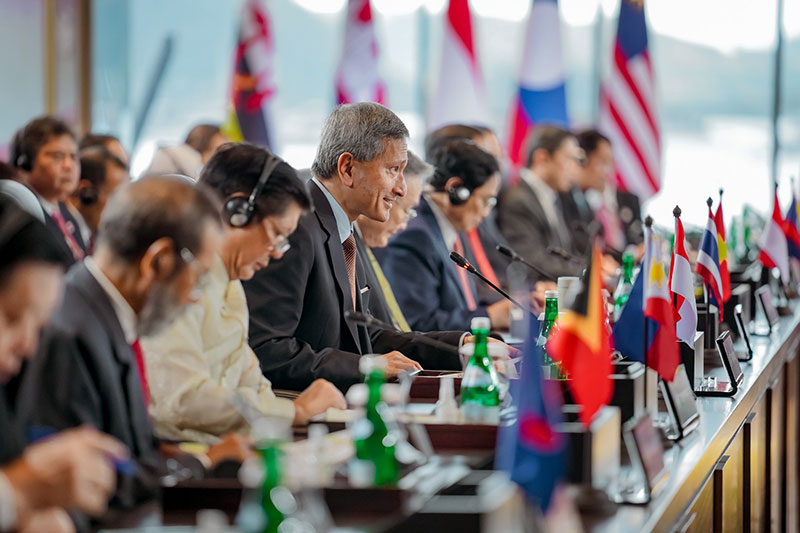ASEAN has proven that thanks to collaboration, cooperation, and synergy between the Government and the business world, it was capable of dealing with the COVID-19 pandemic that severely hit the region over the past two years. However, the challenges ahead are still very heavy, such as geopolitical risks and the condition of several financial institutions in the United States and Europe which are still full of dynamics.
Indonesian President Joko Widodo, accompanied by the Coordinating Minister for Economic Affairs Airlangga Hartarto, in the ASEAN Leaders’ Interface with Representatives of ASEAN Business Advisory Council (ASEAN-BAC) session invited every ASEAN Member States to strengthen collaboration to maintain ASEAN as the Epicentrum of Growth.
“Let’s join hands to formulate a common agenda, to ensure that this region continues to be the Epicentrum of Growth,” said President Jokowi in the meeting, which is a series of events of the 42nd ASEAN Summit,held in Labuan Bajo, NTT, on 10 May).
This is supported by the enormous economic potential of the ASEAN region, accompanied by an economy that is growing above the world average and is currently entering a demographic bonus period, with the number of middle-class people that will continue to increase to 65 percent by 2030.
The theme adopted by ASEAN-BAC this year is ‘ASEAN Centrality: Innovating Towards Greater Inclusivity’” and focuses on five areas — digital transformation, sustainable development, health resilience, food security, and facilitation of trade and investment.
The focus area is in line with Indonesia’s economic priorities in ASEAN, so it is expected to support the completion and produce tangible results from Indonesia’s Chairmanship agenda in ASEAN 2023.
The ASEAN Heads of State and Government expressed their support for the various strategies raised by ASEAN-BAC and encouraged enhancing collaboration between the Government, the private sector, and the community, to achieve the ASEAN Economic Community Blueprint 2025 and the ASEAN Post-2025 Vision. Some sectors that ASEAN Country Leaders are concerned about are connectivity, digital transformation, sustainability, and inclusiveness for MSMEs.
Furthermore, President Jokowi conveyed several strategies ahead of the summit. First, the need to consolidate a joint response to address the global economy. Second, collaboration in preparing the ASEAN Agenda 2045. Third, encouraging concrete and inclusive cooperation in the Indo-Pacific region, including through support at the ASEAN Indo-Pacific Forum (AIPF) in September 2023.
“Partnerships and collaboration between the business world and the government must be further strengthened to ensure that this region becomes the Epicentrum of Growth,” concluded President Jokowi.
ASEAN-BAC was established by ASEAN Heads of State and Government at the 7th ASEAN Summit in 2001. ASEAN-BAC has the mandate to provide inputs and recommendations in promoting regional economic integration and identifying priority areas for consideration by the Governments of ASEAN Member States.



















